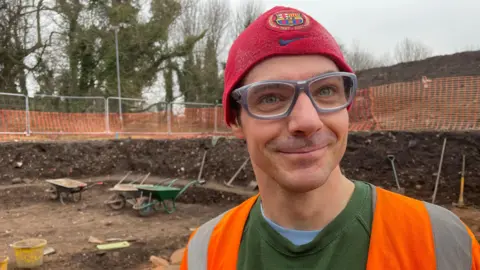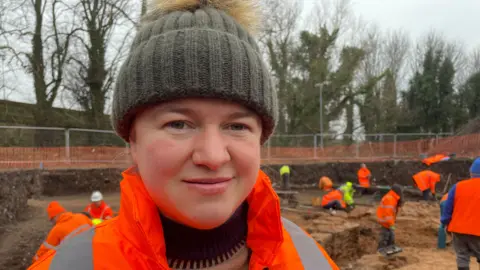Roman dig gives training to those out of work
 BBC
BBCOver the years, it has helped turn up some stunning historical artefacts.
But now it is hoped a long-running archaeological dig on the site of an imperial Roman bathhouse in Carlisle can also help a number of long-term unemployed people back into work.
About 15 people from across Cumbria have begun to train and learn about the basics of archaeology and tourist guiding.
One is Robert Burns, from Carlisle, who is looking for a job.
"I finished my last job in November, and this opportunity came up," he said.
"Hopefully this can lead to some employment, I've already used some of the skills that I've learnt in interviews."
Another is Penny Jackson, from Barrow.
"I've been out of work for a few months and I've been looking at what I want to do next and archaeology is something that really fascinates me.
"It's something that I didn't think I would be able to get into without a full degree, but this is a good opportunity to train and do some work in archaeology."

The dig, at Carlisle Cricket Club, first started in 2017.
It has unearthed a series of nationally important finds such as the heads of two major statues, discovered in May 2023.
This latest, two-week programme will dig deeper in to parts of the site that have not yet been explored.
It is also hoped excavations by both professionals and community volunteers will shed light on the medieval period in Carlisle.
Lead archaeologist Frank Giecco said it was a perfect opportunity for people new to archaeology to learn new skills and make a genuine contribution.
"We have at least two people on this scheme who are going to go into professional archaeology, and that's incredible.
"We'll be back in the summer too and we'll have around 1,500 children as well as another 500 volunteers involved."
